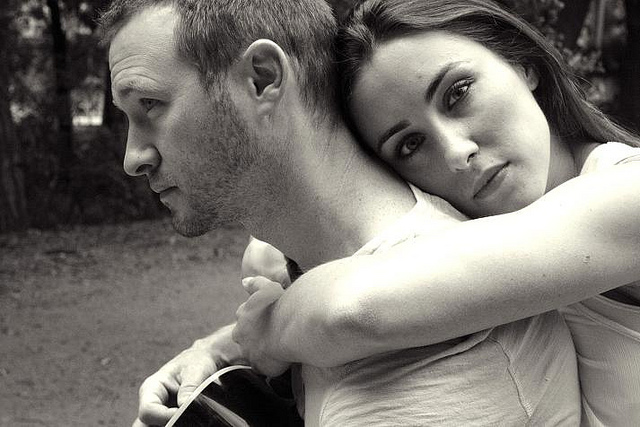Letting go has become a spiritual catch phrase.
We proudly drink our lattes and talk about how we’ve effectively implemented non-attachment in our relationships. We gather up our bottled water and yoga mats and head over to our newly redesigned gym for a session of hot yoga, while intensely discussing how we let go of this or that relationship and moved forward in our lives.
We’re all nodding our identically pony-tailed heads (a man-bun bobbing in the middle) as we take our seats in a class of pastel workout outfits and piped-in pop music. We’ll sweat our way to fitness and spiritual nirvana in pride, knowing that we’ve let go of our attachments without a qualm.
Of course, that’s all an exaggeration, but we have begun to equate letting go with spirituality and even maturity. But the real truth is that moving on doesn’t necessarily mean that we’ve let go. Sometimes we don’t actually—dare I say this aloud?—want to let go. Just because a relationship is over doesn’t mean that all of our feelings about the relationship are done. Sometimes we want to hold on a little longer, feel all the feelings that come up, and sit with them a little while.
While our friends are encouraging us to get over this person by getting under someone else, we just want to spend a little more time dealing with the end of the last relationship (and all its residual feelings) before engaging with someone new. Or sometimes, we’re quite happy to try the get-under-to-get-over strategy, while still holding on to the last experience. We might even start a new relationship—but it doesn’t mean we’ve let go.
Sometimes people let go easily when they weren’t holding on all that much in the first place. It’s easy to let go of something when we weren’t invested in it. It can also be somewhat easier to let go when it was a mutual parting of ways, although I find that it’s rarely truly mutual.
We have this idea that our feelings are only appropriate for so long. If that appropriate time expires, everyone expects us to let go and move on already. We can practically see their feet tapping with impatience as they wait for us to finish processing the loss, so we can get over it. But loss doesn’t have a universal timeline, and getting over some relationships isn’t as easy as just finding a new one and moving forward. It all sounds so simple—until we’re the one in the breakup that we didn’t want, struggling to process it. Then it’s a bit more complicated than the words “letting go” and “moving on” lead us to believe.
If this sounds like the voice of experience—it is. I’m quite good at moving on, practically an expert even. However, I’m not great at letting go. It probably looks as though I am. I do all the things that look like letting go. I can be happy, go out on dates, and generally move forward with my life. That doesn’t mean I’m not holding on to love or dealing with feelings of loss. It just means that I’m resilient and capable of living my life, even with someone missing from it. I can start again and move ahead, but it doesn’t mean I’ve let go. It just means that I’ve moved on.
It’s sort of this terrible paradox, because moving on implies letting go—and eventually, I will have to let go to truly move on, right? But no one can tell us when the right time is to let our feelings (or that person) go. No one else can dictate how long we’ll need to experience the loss—and no one else can tell us how to do it, because what works for one person might not work for someone else. The truth is that we often sit there and detail how we’ve successfully let go, when all we’ve really done is moved on. It’s not the same thing—and that’s okay. It’s okay, even if we don’t want to let go…just yet.
~
Relephant:
How to Know When to Hold on & When to Let Go.
Here’s a list for When to Hold on & When to Let Go.
~
Author: Crystal Jackson
Image: Flickr/Ashley Webb
Editor: Yoli Ramazzina
Copy Editor: Catherine Monkman


 Share on bsky
Share on bsky





Read 0 comments and reply